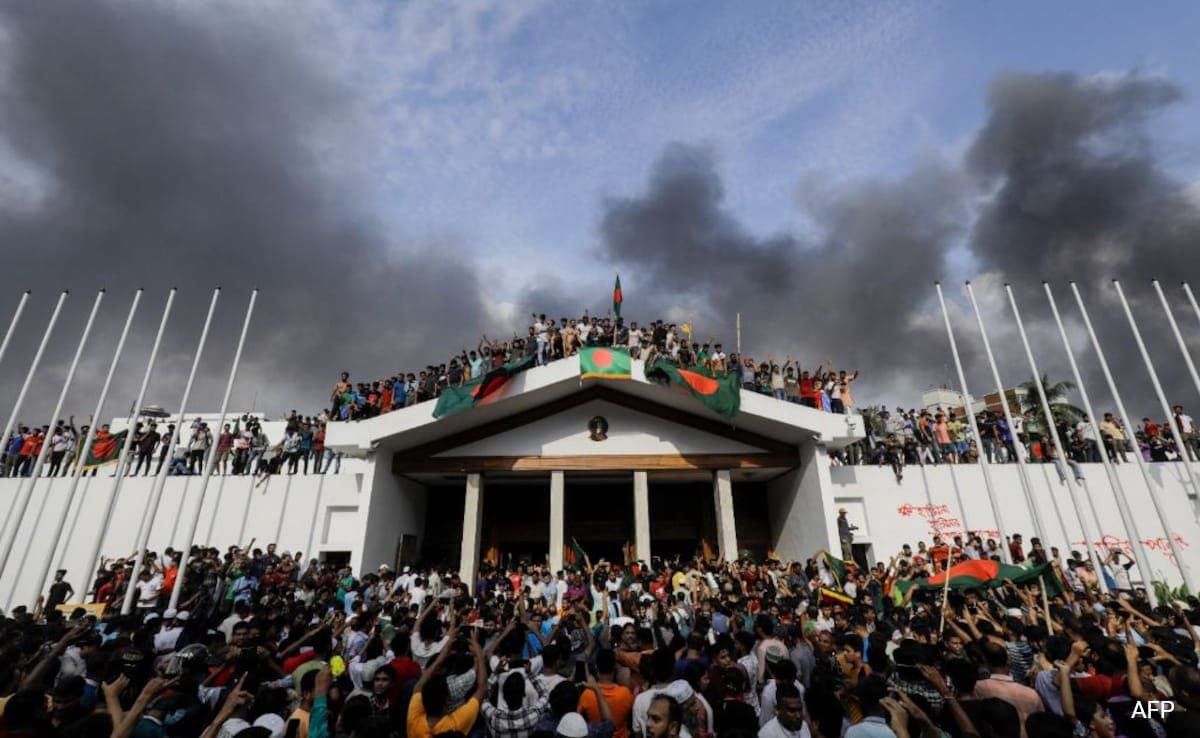India and Bangladesh’s bilateral trade, which reached $13 billion in the financial year 2023-24, is facing potential disruptions due to the ongoing political crisis in Bangladesh as Sheikh Hasina resigns amid the nationwide protests. The crisis threatens to impact trade stability and economic relations, particularly given Bangladesh’s role as the top destination for India’s cotton exports and a major importer of Indian petroleum products and cereals.
The Indian finance ministry is closely monitoring the situation, concerned that political instability could undermine the significant trade gains achieved during Sheikh Hasina’s tenure. Her leadership fostered strong economic and cultural ties between the two nations, leading to a trade surplus in India’s favor. The potential departure of Hasina could disrupt these benefits, affecting trade flows and possibly delaying the progress of a proposed free trade agreement (FTA).
When the @albd1971 Govt and the student protestors were on the same page on reforming and/or abolishing #quotas in govt jobs, then how did the peaceful and non-political #QuotaMovement turn violent?
Watch to find out.#Bangladesh #QuotaMovement pic.twitter.com/y2AC2r8DEV
— Sajeeb Wazed (@sajeebwazed) July 22, 2024
Bangladesh, under Hasina’s administration since 2009, has been a crucial ally to India, contributing to the fight against anti-India terrorist groups and strengthening bilateral relations. The FTA discussions, which began in October 2023, aimed to reduce or eliminate customs duties on traded goods, potentially boosting exports for both countries—by up to 297% for Bangladesh and 172% for India, according to a World Bank study. However, the future of these negotiations is uncertain with the interim Bangladeshi government in place.
Mohit Singla, chairman of the Trade Promotion Council of India, expressed concerns about the potential impact on India’s agricultural exports, worth over $1.8 billion. Commodities like soybean, soya bean meal, animal feed, and onions could be particularly affected.
Infrastructure and connectivity projects have been central to the Indo-Bangladesh relationship, with India extending $8 billion in credit since 2016 for developing key infrastructure in Bangladesh. Projects such as the Akhaura-Agartala cross-border rail link and the Khulna-Mongla Port rail line, inaugurated in November 2023, were expected to boost trade and enhance people-to-people connections.
Disruptions in these ties could impede India’s access to its Northeast region, which relies on narrow land corridors. Existing bus routes and port agreements with Bangladesh also face potential risks.
India had a $9.2 billion trade surplus with Bangladesh in FY24, with major exports including cotton, coffee, tea, and machinery. The ongoing unrest has led to issues such as internet disruptions affecting banking transactions and challenges in issuing letters of credit, raising concerns among exporters, particularly in Kolkata.
The unrest poses a substantial risk to the trade dynamics between the two countries. The coming days will be critical in assessing the full impact on regional trade and economic stability.





